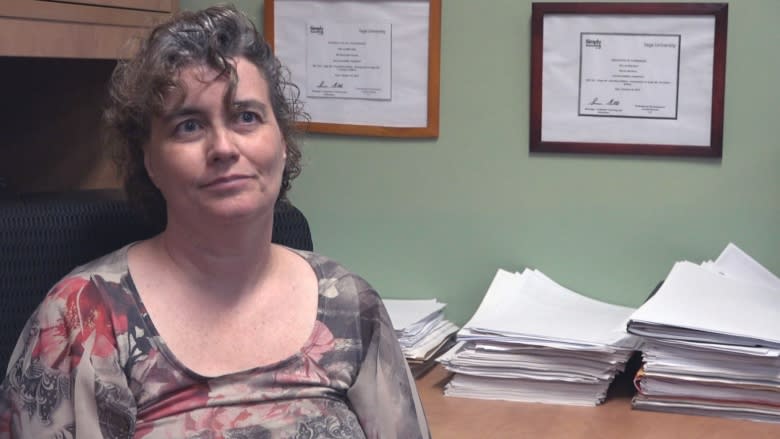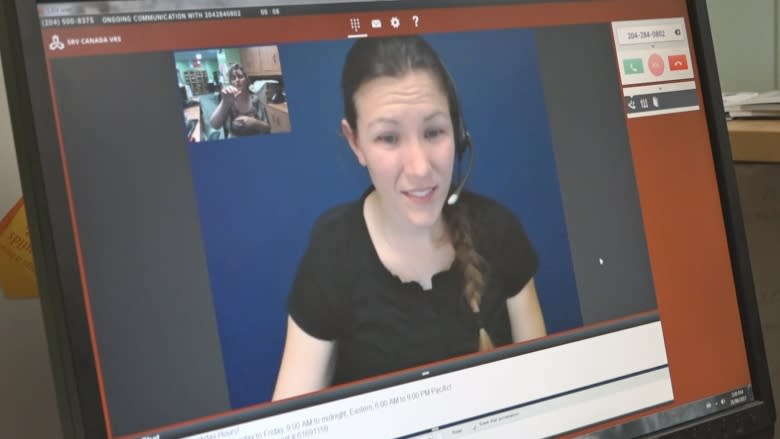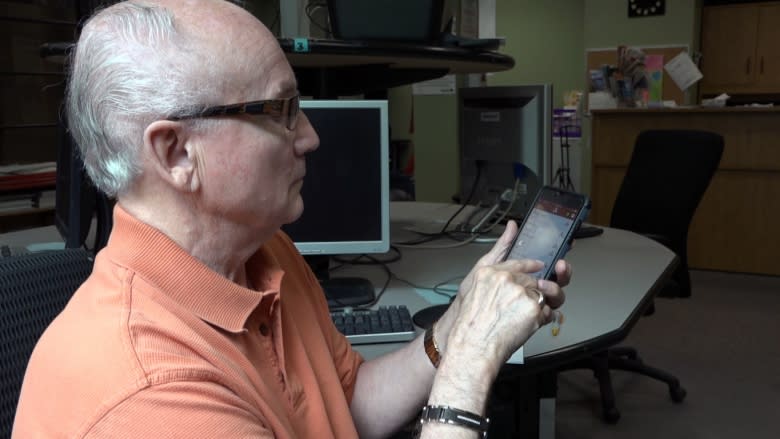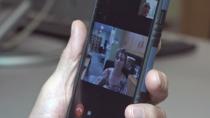New video call service for people who are deaf mistaken for telemarketing
A service that helps people who are deaf and hard of hearing make phone calls is being mistaken for a telemarketing service, resulting in slammed down phones and cut lines before the person has a chance to communicate.
VRS, or video relay service, was introduced in September to allow Canadians who are deaf and hard of hearing to communicate in their first language — American Sign Language.
"A lot of people don't know what VRS is. When we phone, sometimes they think it's a telemarketer and they end up hanging up," said Sheila Montney, Deaf Centre Manitoba's executive director.
"I would say there's probably about 30 — there's been many, many [people hung up on]."
She said users of the service "come and try to ask me for help and let me know that a lot of people are hanging up on them. What I do is I phone the business or the office that they were trying to contact and let them know that individual is trying to reach them."
Previous systems, like teletypewriters, or TTY, required people to write out what they wanted to say in English, and an operator would read it to the person being called.
"The Canadian Association of the Deaf had been fighting for 12 years to get VRS services so we could sign and communicate in our first language of sign language," said Montney.
"You have to remember that English is not our first language … If a deaf person were using TTY to communicate, sometimes medical information can be very complicated or complex. There can be a lot of misunderstanding when it's coming through a second language."
Short delay at start of call
Under the new system, people who are deaf use a video-chat system to sign with an interpreter who then relays the message via phone to the person they wish to reach. It works for incoming and outgoing calls and has an option for people who are deaf or hard of hearing to speak directly to each other through video chat.
But the start of the call has a short delay as the interpreter tells the caller the phone is ringing, when it's been answered and when they can sign their message. The operator then asks for the correct person and informs them they are being called by video relay.
Dennis Zimmer works for the Manitoba Deaf Association and said the VRS system has been "wonderful for me personally."
Zimmer said he can now make his own doctor's appointments, check for lab results, speak to family members and for the first time ever, make outgoing calls from his cellphone.
"I'm able to call anybody I want to, and they can call me. When I had a TTY, I was limited to who I could communicate with," he said.
One problem, though, is that some organizations have been slow to adapt, Montney said.
"Let's say I lost my credit card, and I needed to contact the bank," she said. "They would say, 'I think I can hear that we're using a relay service' … the bank often won't allow that because they're not speaking directly to me."
Zimmer says getting calls back can be difficult too. Either people don't realize they can call him back using the service or they aren't comfortable doing so.
Montney is working with Winnipeg South Centre member of Parliament Jim Carr to resolve some of those issues.
In the meantime, Deaf Centre Manitoba is asking anyone who gets a call from the service to be patient before hanging up.
Montney also said businesses and call centres are also welcome to get in touch with Deaf Centre Manitoba for more information on how VRS works.










